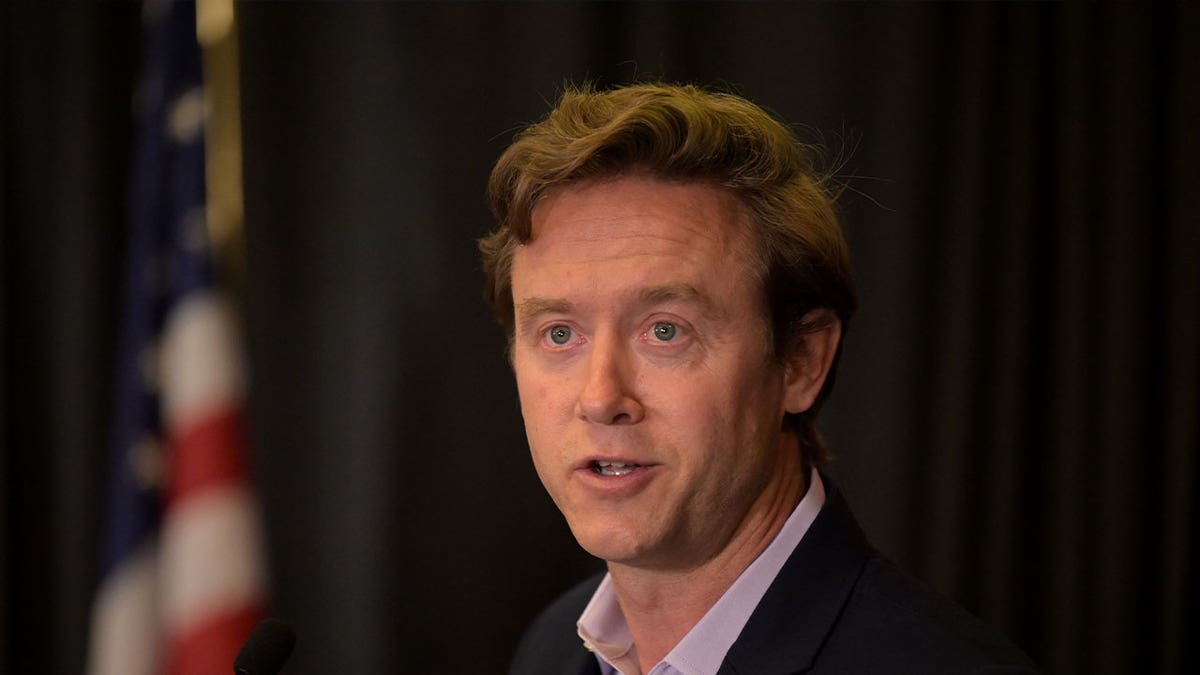Homelessness and crime could shape Denver's largely up-for-grabs mayoral race: Radio host Ross Kaminsky
Ross Kaminsky, host on Denver's KOA Radio, discusses his city's upcoming mayoral election and the major homelessness crisis.
- The residents of Denver have chosen Mike Johnston, a former Oregon state senator, as the city’s first new mayor in more than a decade.
- Johnston won Tuesday’s runoff election following an unusually large 16-way mayoral race in April.
- Opponent Kelly Brough wished Johnson "godspeed in the work ahead" as rapidly growing Denver faces out-of-control housing costs and increased homelessness.
Former Colorado state senator Mike Johnston claimed victory as opponent Kelly Brough conceded Tuesday night in a runoff election to become Denver's next mayor.
Unofficial results showed Johnston with 54.05% of the vote to 45.95% for Brough late Tuesday night. Johnston was ahead by 8,000 votes shortly after polls closed and that lead grew to nearly 11,000 votes as the night went on.
Johnston will be the city's first new mayor in more than a decade, replacing Michael Hancock, who was elected in 2011 and was term-limited.
DENVER’S MORE MODERATE MAYORAL CANDIDATES PULL FAR AHEAD IN PROGRESSIVE FIELD
Brough, the former president and CEO of the Denver Metro Chamber of Commerce, told supporters Tuesday night that she had called Johnston and "wished him godspeed in the work ahead because our city is challenged and it needs a lot of work."
The two moderates were the top vote-getters in a 16-way race in April, sending the race to Tuesday’s runoff.
Denver has become the tech and business hub of the Mountain West but now faces problems similar to those in San Francisco and Los Angeles. Johnston will helm a rapidly growing city faced with out-of-control housing costs and increased homelessness.

Former state Sen. Mike Johnston speaks in Denver, Colorado, on May 11, 2023. Residents of Denver have elected former state Sen. Mike Johnston as the city’s first new mayor in more than a decade. (Hyoung Chang/The Denver Post)
The job of Denver mayor has launched careers, notably that of John Hickenlooper, a Democrat who went on to become Colorado’s governor and is now a U.S. senator. Another Democratic mayor, Frederico Peña, went on to become U.S. Energy Secretary under former President Bill Clinton.
Peña endorsed Johnston, who also had a larger warchest, including nearly $5 million raised from outside contributions.
A tech and aerospace hub, the Denver metro area’s population has almost doubled over the past three decades, reaching 3 million. Fears that rapidly growing Denver is lurching toward a fate like other major cities defined the race.
DENVER VOTERS WILL HAVE OPTION OF 16 CANDIDATES IN THIS YEAR'S UNUSUALLY LARGE FIELD
Candidates debated whether to enforce a ban on growing homeless encampments, further fund the police, impose rent control and allow what are often called "safe injection sites" — where people may use drugs under supervision to prevent overdoses.
The ban was a legacy of Hancock's administration.
Johnston, who got slightly more votes than Brough in the April election, has said voters want the next mayor to do a good job of taking multiple approaches to problems.
"We do have the same problems that San Francisco and Seattle face," he said in April. "If we get that wrong, you end up like a lot of other big cities where no middle class people can live."
CLICK HERE TO GET THE FOX NEWS APP
Brough campaigned on her knowledge of Denver and experience as a CEO. Besides leading the Denver chamber of commerce, she has been chief strategy officer for Metropolitan State University of Denver and was Hickenlooper's chief of staff for three years when he was mayor.
Denver's homelessness rate has grown by over 12% over the past two years. Whether to enforce the ban divided candidates in the April election but Johnston and Brough both have said they would enforce it.
The future mayor will also inherit a city experiencing a rise in gentrification, the highest crime rate in decades, and a surge in opioid overdoses that reached 473 deaths in 2021.




